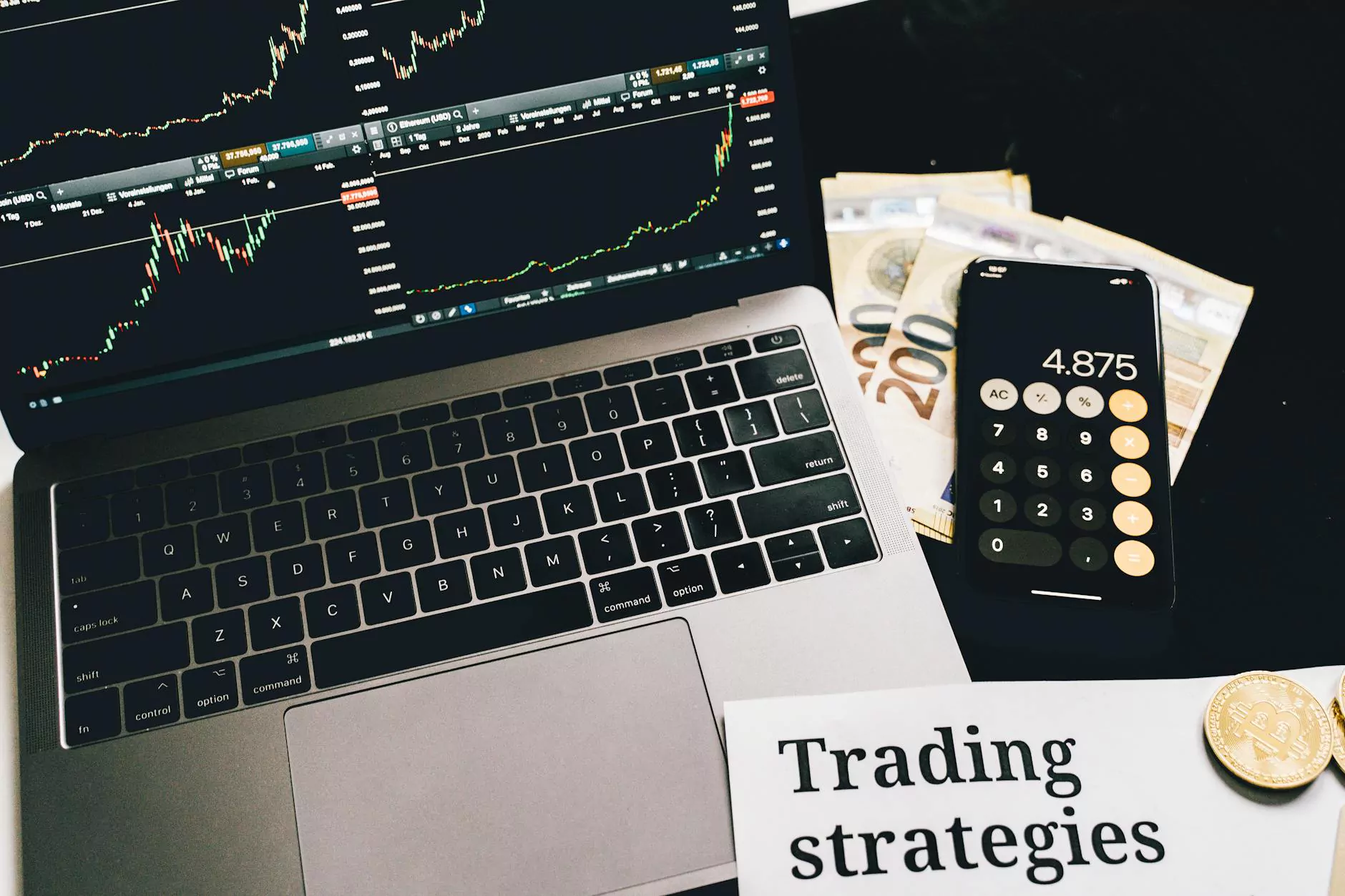Understanding Forex Competition: Strategies for Success

The world of Forex competition is multifaceted and dynamic, drawing traders from diverse backgrounds, each with their own set of skills and strategies. In this article, we will delve deep into what Forex competition entails, the factors that influence trading success, and how businesses, including those in the realms of IT Services & Computer Repair, Financial Services, and Financial Advising, can leverage this competitive environment for growth and profitability.
The Essence of Forex Competition
Forex, or foreign exchange, is the largest financial market globally, with a daily trading volume exceeding $6 trillion. This immense size fuels intense competition among traders and institutions vying for profit from fluctuating currency prices. Understanding the structure and functionality of this market is crucial for anyone looking to succeed in Forex trading.
Key Components of Forex Competition
- Market Participants: The Forex market comprises various participants, including individual retail traders, institutional investors, banks, hedge funds, and corporations. Each player contributes to the market's liquidity and volatility.
- Trading Strategies: Different strategies, such as scalping, day trading, swing trading, and position trading, define how traders compete. Each strategy has its advantages and suits varying risk tolerances.
- Technological Advancements: With the rise of algorithmic trading and artificial intelligence, technology plays a pivotal role in gaining an edge in Forex competition.
- Regulatory Environment: Countries implement regulations to protect investors, which can subsequently affect market dynamics and trading conditions.
Why Forex Competition Matters for Businesses
For businesses operating in sectors related to finance and technology, understanding Forex competition is essential. Here’s how:
1. Economic Impacts
The fluctuation of currencies can have a direct impact on international trade and investment. Businesses seeking to expand globally must consider how exchange rates can affect pricing, profitability, and competitiveness.
2. Financial Services and Forex Insights
Businesses like Bullrush.com offer financial services that can provide essential insights into Forex trends. Understanding market indicators can help clients make informed decisions about currency trading and investments.
3. IT Services Enhancing Trading Efficiency
As the Forex market relies heavily on technology, IT services that ensure system integrity, cybersecurity, and efficient trading platforms are vital. Companies providing these services can establish themselves as leaders in the Forex market landscape.
Navigating Forex Competition: Strategies for Success
Succeeding in Forex trading requires more than just understanding the market; it involves strategic planning and continuous learning. Here are several strategies to consider:
1. Developing a Profound Understanding of Market Analysis
Successful traders utilize both fundamental and technical analysis. Here’s how each analysis can contribute to a stronger competitive edge:
- Fundamental Analysis: This involves evaluating economic indicators, political events, and market sentiment. Keeping abreast of news can provide insights into potential market movements.
- Technical Analysis: Involves using historical price data to forecast future price movements. Tools such as charts, trend lines, and indicators are employed to identify potential trading opportunities.
2. Cultivating Risk Management Skills
Effective risk management is paramount in navigating Forex competition. Implementing strategies such as:
- Setting Stop-Loss Orders: Limiting potential losses by pre-defining exit points to manage risk effectively.
- Diversifying Trading Strategies: Not putting all your capital into a single trade or currency pair can help mitigate risks.
- Position Sizing: Determining how much to invest in each trade based on overall capital and risk tolerance is vital.
3. Leveraging Technology for Competitive Advantage
Technology is a crucial component of modern Forex trading. Here are some technological advances to integrate into trading strategies:
- Automated Trading Systems: Using robots to execute trades based on preset criteria can enhance trading speed and efficiency.
- Mobile Trading Apps: Accessing the Forex market through mobile platforms allows traders to capitalize on opportunities at any time, increasing flexibility.
- Data Analytics: Utilizing data analytics tools can provide traders with insights to anticipate market movements based on historical data.
4. Continuous Learning and Adaptation
The Forex market is ever-evolving, making continuous education vital. Engage in:
- Online Courses and Webinars: Educate yourself on various trading strategies, tools, and market dynamics from seasoned traders.
- Community Engagement: Joining forums and trading communities can provide invaluable insights from fellow traders and experts.
- Backtesting Strategies: Testing new strategies against historical data can help determine their effectiveness before implementing them in live trading.
Impacting the Financial Services Landscape
Businesses providing financial services play a pivotal role in the Forex trading ecosystem. They can offer valuable resources and tools that empower traders, such as:
1. Access to Advanced Trading Platforms
Offering cutting-edge trading platforms can set financial services apart. Features such as real-time analytics, user-friendly interfaces, and customizable dashboards enhance the trading experience.
2. Personalized Financial Advising
Tailoring financial advice to individual traders can improve their ability to navigate Forex competition. Assessing risk tolerance, investment goals, and market conditions can aid in developing personalized trading plans.
3. Comprehensive Educational Resources
Providing educational content—ranging from articles to detailed trading guides—can position financial services as industry thought leaders. Knowledgeable traders are more likely to succeed, reflect positively on the services provided, and foster long-term client relationships.
Conclusion: Thriving in the Forex Competition
In conclusion, the Forex competition landscape presents both opportunities and challenges for traders and businesses alike. Understanding market dynamics, leveraging technology, and engaging in continuous learning are pivotal strategies for success. As the global financial markets continue to evolve, those who stay informed and adaptive will find themselves at a significant advantage.
By integrating these insights, businesses, particularly those in the IT Services & Computer Repair, Financial Services, and Financial Advising sectors, can not only thrive in the Forex competition but also become valuable partners to traders navigating this complex and lucrative market.
Join the Conversation
We encourage you to leave your thoughts in the comments below. Share your experiences and strategies related to Forex trading and how competition has shaped your approach.









